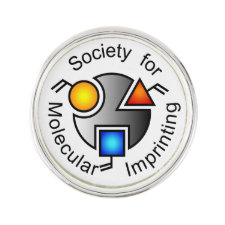
Authors: Hu L, Zhao Y
Article Title: Cross-Linked Micelles with Enzyme-Like Active Sites for Biomimetic Hydrolysis of Activated Esters.
Publication date: 2017
Journal: Helvetica Chimica Acta
Volume: 100
Issue: (8)
Page numbers: ArticleNo:e1700147.
DOI: 10.1002/hlca.201700147
Abstract: Enzymes have substrate-tailored active sites with optimized molecular recognition and catalytic features. Although many different platforms have been used by chemists to construct enzyme mimics, it is challenging to tune the structure of their active sites systematically. By molecularly imprinting template molecules within doubly cross-linked micelles, we created protein-sized nanoparticles with catalytically functionalized binding sites. These enzyme mimics accelerated the hydrolysis of activated esters thousands of times over the background reaction, whereas the analogous catalytic group (a nucleophilic pyridyl derivative) was completely inactive in bulk solution under the same conditions. The template molecules directly controlled the size and shape of the active site and modulated the resulting catalyst's performance at different pHs. The synthetic catalysts displayed Michaelis-Menten enzymatic behavior and, interestingly, reversed the intrinsic reactivity of the activated esters during the hydrolysis
Template and target information: trasition state analogue, TSA
Author keywords: Micelle, nanoparticles, catalysis, molecular imprinting, hydrolysis



Join the Society for Molecular Imprinting

New items RSS feed
Sign-up for e-mail updates:
Choose between receiving an occasional newsletter or more frequent e-mail alerts.
Click here to go to the sign-up page.
Is your name elemental or peptidic? Enter your name and find out by clicking either of the buttons below!
Other products you may like:
 MIPdatabase
MIPdatabase









